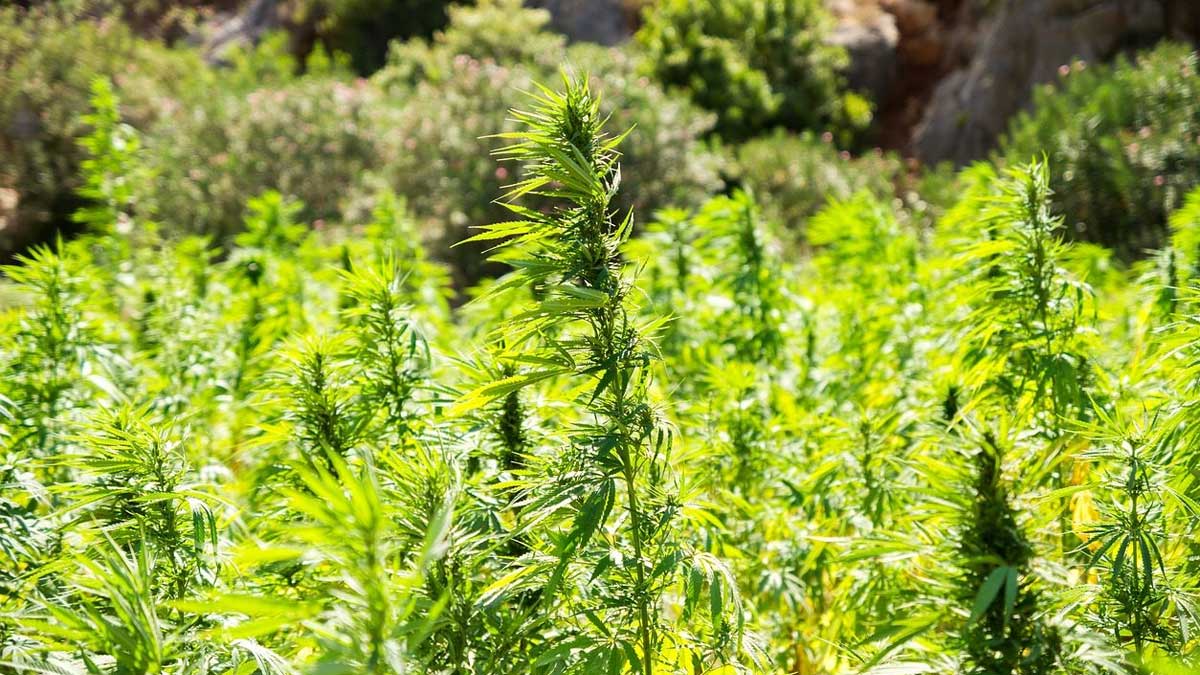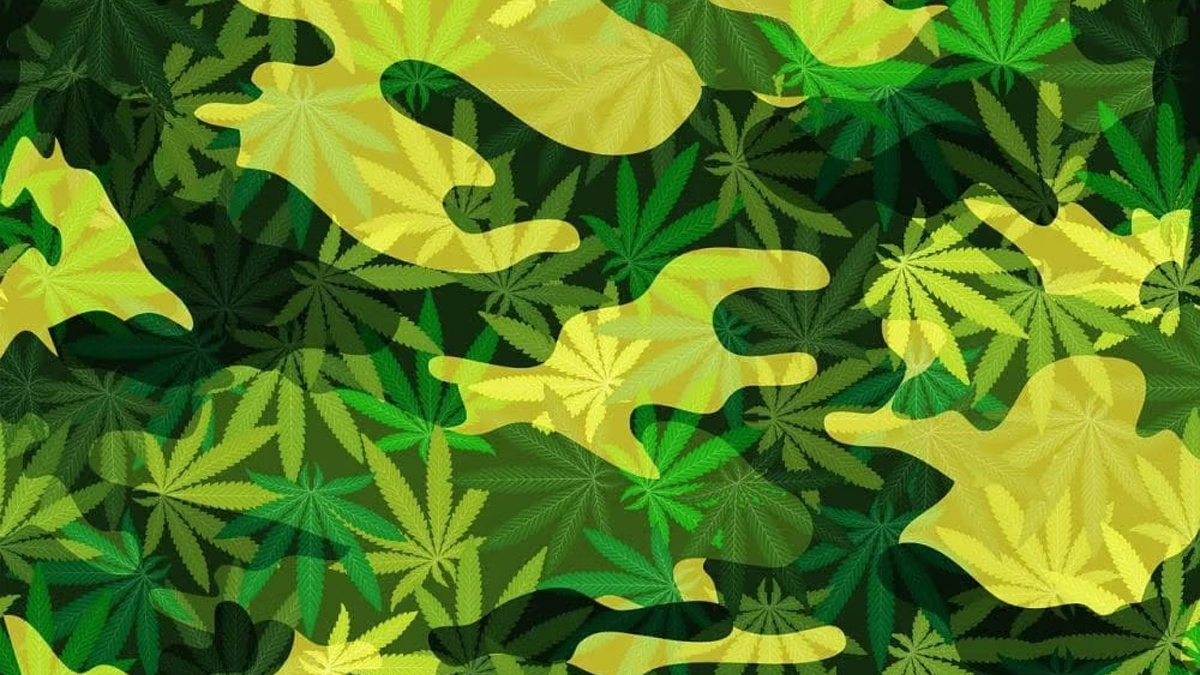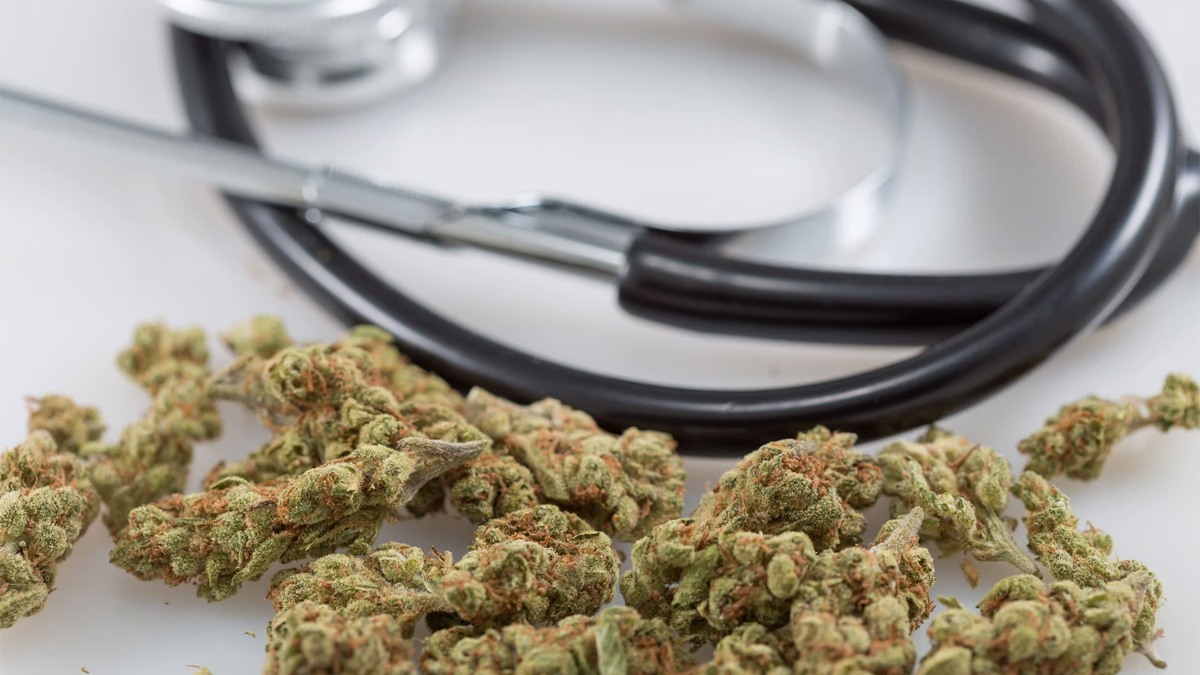
Photo courtesy of Pixabay.
Hemp leaf extract containing cannabidiol (CBD) could be a promising new natural insecticide, according to a new study that found it effectively killed larvae of mosquitoes that spread yellow fever—including one variety of the insect that’s resistant to conventional insecticides.
The study, published this summer in the journal Insects, found that hemp leaf extract with above a certain concentration of CBD killed the larvae of the Aedes aegypti mosquito—which spreads diseases such as dengue, Zika and yellow fever—within about two days.
The effects were seen in both mosquitoes that are susceptible to insecticides known as pyrethroids (PS) as well as in mosquitoes that are resistant (PR).
Authors from Ohio State University wrote that CBD “appears to be the principal active ingredient responsible for larvicidal activity.”
“Hemp extracts and cannabidiol are potentially valuable sources for developing biopesticides to control mosquitoes.”
The work was led by entomology graduate student Erick Martínez Rodríguez and was inspired by earlier research showing that the bark of a plant native to Madagascar could also be used as a natural insecticide and bug repellant.
“Mosquitoes are one of the deadliest animals in the world, mainly because as adults they serve as vectors of disease,” Martínez Rodríguez said in a university press release. “It’s very important to be able to control these pests at an early stage, when they are at the most vulnerable.”
How exactly the CBD extract is killing the pests, however, remains an open question.
“The specific mode of action of CBD toxicity against mosquitoes and other insects,” the report says, “is unknown.”
“Intriguingly, insects are one of the few animal groups that do not possess canonical cannabinoid receptors,” authors wrote. “However, at least in mammalian systems, CBD is known to modulate a wide range of biochemical targets… Thus, CBD likely affects multiple biochemical targets and tissues in insects.”
Remarkably, very little CBD was needed to kill the mosquito larvae, Martínez Rodríguez explained.
“If you compare the amount of hemp extract needed to kill 50 percent of the population to other synthetic conventional insecticides, it is on the high side,” the researcher said, “but when you compare it side-by-side to other natural extracts we have tested in our lab, only a relatively low amount is required to produce high mortality values in larvae.”
Authors said the results of the research “are consistent with previous studies that have found the concentration-dependent larvicidal activity of hemp extracts against other mosquitoes,” pointing to at least five other mosquito species that are vulnerable to CBD extracts.
The findings also “align well with prior research suggesting CBD has toxic, antifeedant, and/or growth-inhibiting properties against other insects,” authors wrote, including the tobacco hornworm, corn earworm, fall armyworm, meal moth, saw-toothed grain beetle and flour beetle.
To produce the hemp leaf extract, the research team removed leaves from hemp plants seven months after planting, air dried the leaves for seven days, then pulverized the plant matter in a coffee grinder for five minutes. Methanol was used for extraction, though the solvent was removed in an evaporator after the extract was produced.
“Hemp is a valuable potential resource for developing novel insecticides to control mosquitoes.”
Peter Piermarini, an entomology professor at Ohio State and a coauthor of the report, said further research is necessary to see how safe CBD is for non-target organisms, such as honey bees or other pollinators.
“CBD is a compound that appears to be safe for people and our companion animals to ingest,” Piermarini said. “It’ll be interesting to learn more about how CBD interacts with various proteins in mammals and insects to understand why it’s safe for people but not insects.”
The findings touch on another possible application of hemp in the agricultural sector, where the plant is already being used in a number of ways.
Last month, for example, an organization of livestock feed control officials voted to allow commercial farmers to begin using hemp seed meal as food for egg-laying hens. Under the new policy, which was recommended by the Food and Drug Administration (FDA), hemp meal can account for up to 20 percent of hens’ diet.
The Food and Drug Administration (FDA) sent warning letters in 2022 to a series of businesses marketing CBD products for animals, cautioning that there’s a “lack of data on what levels of potential residues are safe for a person consuming the foods that come from CBD-treated animals.”
Last April, however, the U.S. Department of Agriculture (USDA) found that cows that are fed hempseed cake retain very low concentrations of THC and CBD in their bodies, indicating that meat products from hemp-fed cattle are safe for human consumption.
Another federally funded study published in 2022 found that feeding cows hemp in fact reduces their stress levels. Researchers have also previously looked into how CBD affects stress and pain in horses.
Meanwhile, the U.S. Department of Agriculture (USDA) earlier this year said a genetically modified version of hemp produced by researchers in Wisconsin “may be safely grown and bred in the United States” and is “unlikely to pose an increased plant pest risk compared to other cultivated plants.”
The hemp variety, dubbed “Badger G,” does not produce THC or CBD but is designed to have higher levels of the cannabinoid CBG. It’s at least the second type of genetically modified hemp to get the OK from regulators after another modified plant, which produces lower levels of THC and CBC, was approved in October.
It’s possible that any CBD-based pesticide would be illegal under California’s newly proposed hemp restrictions. No hemp-derived product could contain any THC whatsoever, and even pure CBD products would need to be sold to adults 21 and older through licensed marijuana retailers.
Ben Adlin via (https://www.marijuanamoment.net/cbd-rich-hemp-extract-is-an-effective-natural-insecticide-against-mosquitoes-new-research-shows/)
Keep out of reach of children. For use only by adults 21 years of age and older.










